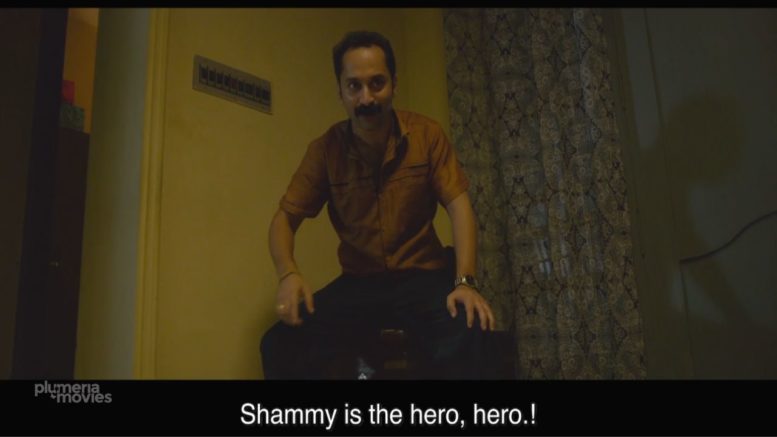Exploring the internal patriarchy within Shammy that leads to a catastrophic outcome for the lovebirds, Bobby and Boby. Unraveling Saji’s psychological journey, which transforms the dysfunctional family into a House of Humanity.
One year has passed since the release of “Kumbalangi Nights,” the heartwarming Malayalam film of the decade, along with “Sudani From Nigeria.” Both films significantly emphasize the theme of ‘Humanity,’ a beautiful emotion sustaining our planet. Syam Pushkaran, the writer, takes a principled stand against casting Alacier (a close friend and Me Too accused) in subsequent ventures, stating, ‘Souhridham thenga aanu, manusvatham aanu ellam’ (Friendship is balls, Humanity is everything!). “Kumbalangi Nights” reflects the writer’s political stance throughout its narrative.
Saji’s Psychological Repatriation
In the spotlight are Shammy (Fahad Fazil) and Saji (Soubin Shahir), two contrasting characters embodying patriarchal and matriarchal traits, respectively. Shammy takes pride in his well-groomed mustache, considering it a symbol of his masculinity. Saji, with a full, carefree beard, opposes Shammy’s patriarchal attitude, advocating for women’s rights, especially during Bobby’s outburst against his mother.
“Kumbalangi Nights” showcases intricate writing by Syam Pushkaran and minimalist yet powerful filmmaking by Madhu C Narayanan. The characters of Saji and Shammy undergo psychological arcs, with Shammy’s psyche unraveling as Bobby and Baby’s relationship progresses. Conversely, Saji experiences heightened fragility after his suicidal attempts result in a catastrophe for his friend Murugan, a Tamilian clothes presser, offering an intriguing nod to Mammootty’s character in Kamal’s “Karutha Pakshikal.” Saji, adopting a matriarchal stance, seeks mental health assistance for Murugan.
The film’s climax serves as a triumphant moment of humanity prevailing over patriarchy. It seamlessly embodies the film’s conceptual clarity, allowing events to unfold without disrupting the narrative chain.

Shammy’s Moral Policing Fiasco
Explore Shammy’s moral policing standards as he intrudes into Nylah’s room in a misguided attempt, showcasing a unique twist on conventional masculinity.
Break from Conventional Sidekick Roles
In “Kumbalangi Nights,” witness the refreshing break from conventional sidekick roles as Bonnie, a character with depth, challenges stereotypes and brings a touch of diversity to the narrative.
In a notable scene, Bobby’s interaction with Baby prompts a sarcastic commentary on the prevalent toxic masculinity in Malayalam cinema. Syam Pushkaran’s writing skillfully subverts traditional gender norms and provides a humorous take on iconic alpha male heroes.
Cinematic Commentary on Toxic Masculinity
Delve into the cinematic commentary on toxic masculinity through the juxtaposition of a pivotal scene in which Bobby seeks a kiss from Baby in a cinema playing “Arjun Reddy,” known for its celebration of toxic masculinity. Unpack the nuanced portrayal of Bobby’s struggles with quasi-toxic masculinity and how it intertwines with the broader theme of family dynamics.
Challenging Conventional Masculinity
“Kumbalangi Nights” challenges conventional masculinity, portraying men as vulnerable human beings and emphasizing the importance of seeking help in challenging situations. Explore the film’s progressive stance on masculinity and its impact on the younger generation.

Ode to Humanity Through Metaphors
Explore how “Kumbalangi Nights” serves as an unabashed ode to humanity while challenging patriarchy, using metaphors like the fishing net and paying homage to the resilience of fishermen during the Kerala floods.
Romance Woven in Everyday Life
Unpack the intricate romance track in the film, where subtle gestures like throwing a fishing net become symbolic moments. The film beautifully captures the blossoming attraction between characters against the backdrop of a fishing community.
Symbolism of Open Doors
Delve into the symbolism behind Napoleon’s house lacking doors, reflecting a figurative openness and acceptance. Witness the portrayal of outcasts like Saji’s friend’s widower and Bonnie’s black girlfriend finding refuge within the embrace of humanity.
Influences from Cinematic Masters
Explore the potential influences of cinematic legends Padmarajan and Stanley Kubrick on the portrayal of toxic masculinity in “Kumbalangi Nights.” Analyze parallels with characters from films like “Koodevide” and “The Shining,” where toxic masculinity leads to disastrous consequences.
Ambiguous Climax and Gender Justice Platform
Examine the film’s ambiguous climax, drawing parallels between contrasting protagonists and depicting toxic masculinity as madness. Discuss how the narrative unintentionally falters with political correctness and the potential impact on mental health representation.
Verbal Tweak on Manhood
Analyze the pivotal moment in the film where Saji’s verbal tweak on Shammy’s manhood becomes a turning point. Unpack the iconic one-liner, “Shammy Hero Aada Hero,” and its significance in subverting the prevailing celebration of toxic masculinity in the industry.
Shifting Hero Narratives
Reflect on the changing landscape of hero narratives in Malayalam cinema, emphasizing characters like Shammy, Induchoodan, and Rajan Zakaria. Discuss the transformative potential of films like “Kumbalangi Nights” in subverting patriarchal norms and paving the way for more progressive narratives.

CA Student who’s enthusiastic about films.


Be the first to comment on "One year of Kumbalangi Nights: Diffusing Patriarchy!"